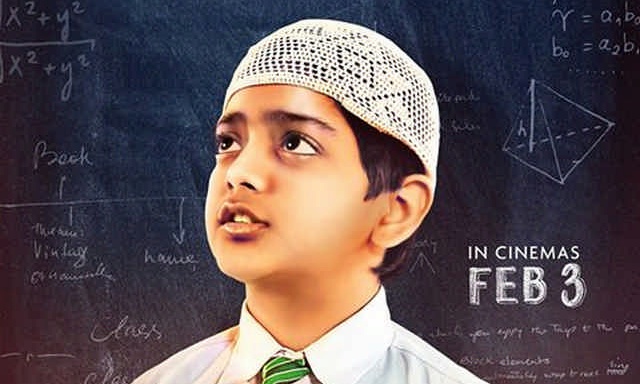Movie Review: Alif
First published on Follo.in
A remarkable number of films have been set around Banaras. There have been romances like Ranjhanaa, and there have been stark dramas like Masaan. Yet, Zaigham Imam’s Alif is nowhere like others. It takes a story that is integral to the city and at the same time could be set just about anywhere in the country. Primarily because it showcases one of the most important topics of present times, the need for education.
Alif is the story of a young boy who is being taught at a Madrassa. However, his aunt convinces his father to enroll him for mainstream education apart what he is taught at the madrassa. So he is admitted into an English school, which has students from other religions as well. It shows the kid’s struggle and but more importantly, it is about the societal pressure and mindsets that need change.
Alif is essentially a Muslim-social but talks of larger issues that have no religious barriers. It draws inspiration from films like Shyam Benegal’s Mammo, almost borrowing of its primary characters.
Despite a great storyline, Alif is marred by inconsistent performances. The senior-most actor in the case, Neelima Azim, hams abysmally. And this should give you an indication of how the rest goes about their job.
Yet, most things become passable as the drama unfolds. Alif brings to us some disturbing realities; of communal biases and regressive outlooks.
What Zaigham gets bang on is his protagonist Ali – the child. He manages to take you in with his innocence. Kids here behave like kids do. Ali’s ‘important matters’ should you smile while his hardships will make you cringe. Ali brings Alif to life.
An independent film made on a shoe-string budget, Alif faces shortcomings that a better budget could have helped. Yet, the director takes pains to make the film look big enough, and also tries to show a side of Banaras that is not usually seen. You wish he had put as much effort in extracting more realistic performances.
Alif’s message is established with a very strong tagline, which is voiced by Jaya Bachchan in the film – ladna nahi padhna zaroori hai. It translates to it is not important to fight, but to educate yourself. In a country which is disturbed by occurrences that we can’t be proud of, many a time you may have felt how education could have possibly made a change. Education not only could open your mind, it could help you move ahead, together, without biases. That’s reason enough to watch Alif. A very brave effort!
Rating: ***/12
A remarkable number of films have been set around Banaras. There have been romances like Ranjhanaa, and there have been stark dramas like Masaan. Yet, Zaigham Imam’s Alif is nowhere like others. It takes a story that is integral to the city and at the same time could be set just about anywhere in the country. Primarily because it showcases one of the most important topics of present times, the need for education.
Alif is the story of a young boy who is being taught at a Madrassa. However, his aunt convinces his father to enroll him for mainstream education apart what he is taught at the madrassa. So he is admitted into an English school, which has students from other religions as well. It shows the kid’s struggle and but more importantly, it is about the societal pressure and mindsets that need change.
Alif is essentially a Muslim-social but talks of larger issues that have no religious barriers. It draws inspiration from films like Shyam Benegal’s Mammo, almost borrowing of its primary characters.
Despite a great storyline, Alif is marred by inconsistent performances. The senior-most actor in the case, Neelima Azim, hams abysmally. And this should give you an indication of how the rest goes about their job.
Yet, most things become passable as the drama unfolds. Alif brings to us some disturbing realities; of communal biases and regressive outlooks.
What Zaigham gets bang on is his protagonist Ali – the child. He manages to take you in with his innocence. Kids here behave like kids do. Ali’s ‘important matters’ should you smile while his hardships will make you cringe. Ali brings Alif to life.
An independent film made on a shoe-string budget, Alif faces shortcomings that a better budget could have helped. Yet, the director takes pains to make the film look big enough, and also tries to show a side of Banaras that is not usually seen. You wish he had put as much effort in extracting more realistic performances.
Alif’s message is established with a very strong tagline, which is voiced by Jaya Bachchan in the film – ladna nahi padhna zaroori hai. It translates to it is not important to fight, but to educate yourself. In a country which is disturbed by occurrences that we can’t be proud of, many a time you may have felt how education could have possibly made a change. Education not only could open your mind, it could help you move ahead, together, without biases. That’s reason enough to watch Alif. A very brave effort!
Rating: ***/12



Comments
Post a Comment